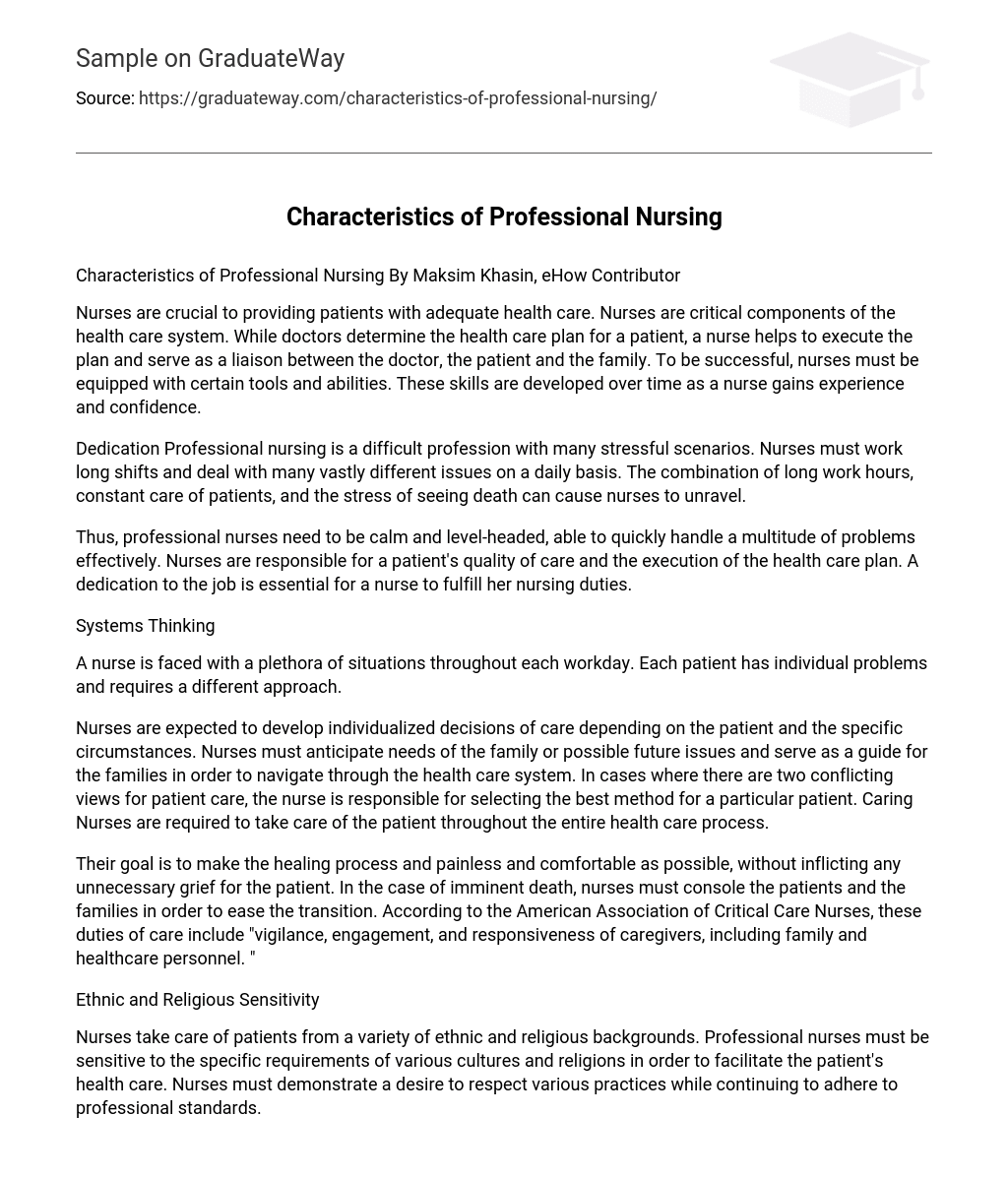Characteristics of Professional Nursing By Maksim Khasin, eHow Contributor
Nurses are crucial to providing patients with adequate health care. Nurses are critical components of the health care system. While doctors determine the health care plan for a patient, a nurse helps to execute the plan and serve as a liaison between the doctor, the patient and the family. To be successful, nurses must be equipped with certain tools and abilities. These skills are developed over time as a nurse gains experience and confidence.
Dedication Professional nursing is a difficult profession with many stressful scenarios. Nurses must work long shifts and deal with many vastly different issues on a daily basis. The combination of long work hours, constant care of patients, and the stress of seeing death can cause nurses to unravel.
Thus, professional nurses need to be calm and level-headed, able to quickly handle a multitude of problems effectively. Nurses are responsible for a patient’s quality of care and the execution of the health care plan. A dedication to the job is essential for a nurse to fulfill her nursing duties.
Systems Thinking
A nurse is faced with a plethora of situations throughout each workday. Each patient has individual problems and requires a different approach.
Nurses are expected to develop individualized decisions of care depending on the patient and the specific circumstances. Nurses must anticipate needs of the family or possible future issues and serve as a guide for the families in order to navigate through the health care system. In cases where there are two conflicting views for patient care, the nurse is responsible for selecting the best method for a particular patient. Caring Nurses are required to take care of the patient throughout the entire health care process.
Their goal is to make the healing process and painless and comfortable as possible, without inflicting any unnecessary grief for the patient. In the case of imminent death, nurses must console the patients and the families in order to ease the transition. According to the American Association of Critical Care Nurses, these duties of care include “vigilance, engagement, and responsiveness of caregivers, including family and healthcare personnel. ”
Ethnic and Religious Sensitivity
Nurses take care of patients from a variety of ethnic and religious backgrounds. Professional nurses must be sensitive to the specific requirements of various cultures and religions in order to facilitate the patient’s health care. Nurses must demonstrate a desire to respect various practices while continuing to adhere to professional standards.





